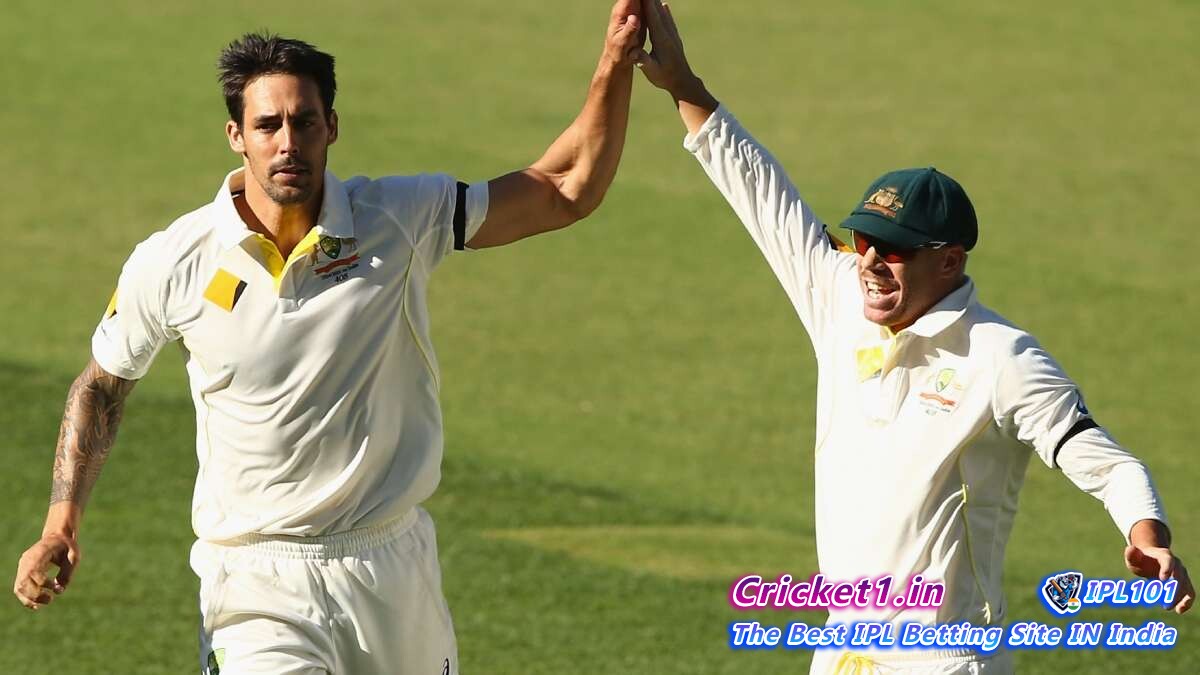
As the prelude to a high-stakes Test series unfolds, the exchange of barbs and bold assertions between rival cricket teams is a time-honored ritual, particularly when the contest involves fierce adversaries like England and Australia, or India squaring off against these cricketing powerhouses. Yet, who could have foreseen a bitter exchange between former teammates from the same Australian contingent?
In an unexpected turn of events, former Australian pace spearhead Mitchell Johnson leveled severe criticism at David Warner, a veteran opening batsman now approaching what could be his final Test series, this time against Pakistan. Johnson has publicly chastised Warner, who has never fully conceded his part in the infamous ‘sandpaper gate’, suggesting Warner’s influence on selecting the timeline of his retirement casts him as placing himself above the sport and the traditions of Australian cricket.
Contesting Johnson’s position, Warner’s agent James Erskine has come to his client’s defense, lambasting Johnson for his lack of insight and for seemingly seeking the limelight with his remarks. Erskine staunchly argues that Warner’s presence in the squad is a merit-based decision, hinging on his current form rather than any disregarded controversy of the past.
“David is in good form. Thank God Mitchell Johnson isn’t a Test selector,” Erskine commented with a touch of relief, before elaborating on alternatives for Warner’s position. “Let me tell you, anyone can get a headline. The fact is [Warner’s selection] is just logical. The three [replacement] candidates will be [Matthew] Renshaw, [Cameron] Bancroft – who has played pretty well in the Sheffield Shield – and [Marcus] Harris. Now they’ve all had spells opening the batting for Australia,” Erskine explained to the Sydney Morning Herald.
The criticism from Johnson, detailed in his column for the West Australian, questions the necessity of a celebratory farewell for Warner, implying undue self-importance on Warner’s part. “Does this really warrant a swansong, a last hurrah against Pakistan that was forecast a year in advance as if he was bigger than the game and the Australian cricket team?” Johnson queried.
Furthermore, Johnson condemned Warner for not adequately addressing his role in the ball-tampering scandal that shook the cricketing world five years ago. Expressing disappointment, Johnson stated, “It’s been five years and Warner has still never really owned the ball-tampering scandal. Now the way he is going out is underpinned by more of the same arrogance and disrespect to our country.”
As discussions regarding Australia’s cricketing future intensify, several former stars, including current selector George Bailey, are contemplating their next steps. With Warner’s current opening partner Usman Khawaja advancing in age, candidates like Cameron Green are being considered for future roles in the team.
As the heated debate continues, it’s clear the cricket community is fiercely divided over the legacy and future of one of Australia’s most controversial yet talented players. David Warner’s prolific batting talent is undisputed, but the shadows of past indiscretions continue to cast a long pall over his reputation. This latest public spat only underscores the complex relationship between individual legacies and the collective ethos of sporting traditions in Australia’s favorite pastime: cricket.

